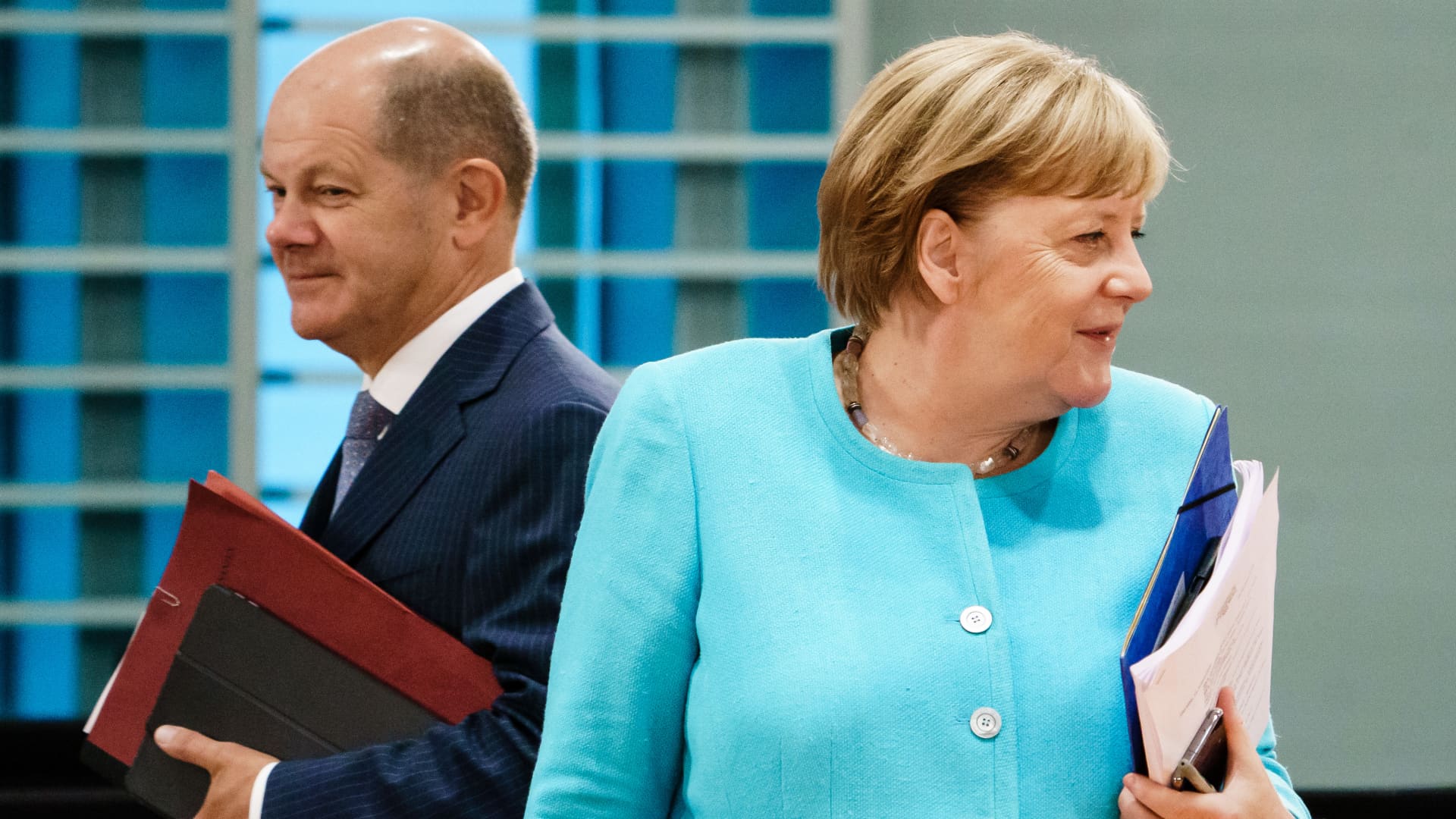Germany is set to hold a crucial federal election on February 23, a vote that will not only decide the country’s next chancellor but also shape its role in an increasingly uncertain world. With rising concerns over economic performance, political instability, and social issues, the election will be closely watched worldwide, particularly as the country faces the possibility of a rightward shift in governance.
Recent polls indicate that Friedrich Merz, leader of the largest opposition party, the center-right Christian Democratic Union (CDU), is the frontrunner. However, the growing popularity of the far-right Alternative for Germany (AfD), bolstered by international endorsements from figures like Elon Musk, has raised alarms in Europe. While Merz has expressed openness to forming a coalition with the Social Democrats (SPD) or the Greens, the following crises will be instrumental in determining Germany’s future leadership.

1. Economic Hardship and Declining Living Standards
-
A recent Gallup poll reveals that Germans are more dissatisfied with their living standards than at any time since the 2008 global financial crisis.
-
The percentage of Germans who believe their situation is improving has fallen sharply from 42% in 2023 to 27% in 2024.
-
The European Commission has projected Germany’s economy to be the weakest performer in the EU this year.
-
A major factor in this downturn is the country’s exposure to the energy price shock following Russia’s invasion of Ukraine, which has weakened its industrial sector and resulted in job losses.
-
Additionally, the U.S. surpassing Germany as its largest trading partner and the potential for trade tariffs under Donald Trump’s administration could further disrupt the economy.
2. Rising Public Distrust in the Government
-
Public confidence in the German government has plummeted, with Gallup data showing a decline to 50% in 2024, the lowest in over a decade.
-
Trust was significantly higher in 2020 (65%) under former Chancellor Angela Merkel.
-
Meanwhile, confidence in institutions such as the military and judicial system has remained relatively stable.
-
Political turmoil, including the collapse of Chancellor Olaf Scholz’s three-party coalition in November 2023, has contributed to this crisis.
3. Housing Crisis and Shortage of Affordable Homes
-
The availability of affordable housing has become a pressing issue, with Germans evenly split between satisfaction (47%) and dissatisfaction (46%).
-
The housing shortage is driven by high interest rates and rising construction costs, exacerbating competition in urban areas.
-
The government has failed to meet its ambitious goal of constructing 400,000 new affordable homes annually.
4. Migration Challenges and Political Responses
-
A series of high-profile attacks linked to immigrants has brought migration policies to the forefront of the election.
-
Germany’s Migrant Acceptance Index score has declined from 7.1 in 2016 to 6.4 in 2023, making it the only major European economy where acceptance has dropped significantly.
-
Merz has courted controversy by aligning with AfD on stricter migration policies, reflecting a broader political shift towards tighter immigration controls.
5. Germany’s Waning Influence in Europe
-
The perception of German leadership in Europe has declined, with approval ratings falling from 60% to 54% in just a year.
-
Countries such as Slovenia, Norway, and Finland have expressed increased skepticism toward Germany’s role in European politics.
-
The ongoing conflicts in Ukraine and the Middle East, coupled with internal instability in France and uncertainty regarding U.S. security policy, pose additional challenges.
-
Merz has pledged to restore Germany’s leadership role within the EU by addressing concerns raised by allies.

How Germany’s Federal Elections Work
Germany's federal election system is a hybrid model that combines elements of both single-member constituencies, as seen in the U.K. and U.S., and proportional representation, which is common in many European nations.
Hybrid Voting System
-
Germany’s Bundestag election involves 630 seats, a fixed number introduced in 2023 to streamline representation.
-
Previously, additional seats were added to ensure proportionality, leading to an oversized parliament (735 seats in 2021).
-
Under the new rules, if a party wins more constituency seats than its proportional vote share, some constituencies will remain vacant to maintain balance.
-
The changes could disadvantage the CDU’s Bavarian sister party, the Christian Social Union (CSU), which traditionally performs well in constituency races.
The 5% Threshold and Exceptions
-
To prevent political fragmentation, parties must secure at least 5% of the national vote to enter the Bundestag.
-
However, a court ruling restored an exception: any party winning at least three constituency seats will receive seats proportional to its vote share, even if it falls below 5%.
-
In 2021, the Left party secured 39 seats under this rule despite falling below the 5% threshold.
Potential Parliamentary Composition
-
Germany’s highly competitive political landscape means the next Bundestag could include anywhere from four to eight parties.
-
A four-party parliament would mark the most consolidated Bundestag since 2017, whereas an eight-party outcome would be the most diverse in modern history.
-
Given the complexity of the system, Merz is likely to require coalition partners—either the SPD, the Greens, or both—to secure a majority government.
-
While the AfD is polling at around 20%, all mainstream parties have ruled out forming a coalition with them.
Germany’s upcoming election will be a defining moment for the country, with economic struggles, political distrust, and migration concerns shaping voter sentiment. While Friedrich Merz leads the race, coalition politics and the intricacies of the electoral system make the final outcome highly unpredictable. The election will not only determine Germany’s domestic direction but also influence its role in European and global affairs.
With inputs from agencies
Image Source: Multiple agencies
© Copyright 2024. All Rights Reserved Powered by Vygr Media.

























